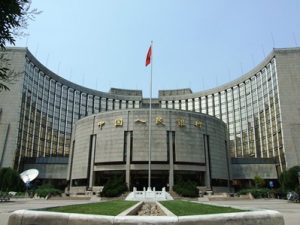The People’s Bank of China (PBOC), the central bank, urged better international coordination to protect personal data, especially in areas like antitrust, data regulation and consumer protection. The legislative, judicial and administrative bodies in various countries should join hands to promote the standard-setting process for personal data protection, given the rapid cross-sector and cross-regional development of financial technologies or fintech.
The PBOC has been focusing on the excessive collection of consumer data and unfair clauses outlined by fintech companies, which require consumers to provide personal information in exchange for accessing financial services. Under the current regulatory framework, financial institutions in China are required to collect, use and store information following the principle of minimum necessity and in accordance with laws.
In order to protect personal credit information, Chinese financial regulators have required fintech companies to isolate their personal credit information business units. Financial institutions are allowed to provide such services only after they receive licenses. Some Big Tech companies have either collected data without permission or misused them. There are also cases of customer data leakage. Therefore, strengthening personal data protection is urgent.
 The ultimate purpose of data protection is to promote its proper usage. On the premise of protecting personal privacy, China will try to define data ownership more accurately, facilitate data transactions and promote fairer use of data to unleash the vitality and innovation capacity of market players. China still faces challenges in data governance at present, like excessive data collection by large technology companies that might violate the data privacy of customers.
The ultimate purpose of data protection is to promote its proper usage. On the premise of protecting personal privacy, China will try to define data ownership more accurately, facilitate data transactions and promote fairer use of data to unleash the vitality and innovation capacity of market players. China still faces challenges in data governance at present, like excessive data collection by large technology companies that might violate the data privacy of customers.
As other major central banks are considering tighter scrutiny of cloud computing services offered by technology companies to banks, the PBOC and the nation’s banking and insurance regulatory body are discussing how to build a special cloud computing and data centre for the financial sector in the country. Meanwhile, the banking regulator requires major State-owned commercial banks to offer free fintech services to the city and rural commercial banks.
The PBOC issued the Administrative Guideline for the Credit Information Business, which defines personal credit information and regulates the credit information business, from data collection to processing and sharing. the Chinese government has taken many measures to improve the market order of the digital economy, including better supervision of fintech companies. There should be a balance between financial stability and innovation, and the target should be set to promote the orderly development of financial and technology industries.
As reported by OpenGov Asia, China has made continuous efforts on improving the financial regulatory system in the face of new challenges posed by financial technology. The Governor of the People’s Bank of China (PBOC) urged disconnecting improper links between financial information and business information to prevent monopoly in the closed-loop of data, network and financial activities.
Source: OpenGov news


























